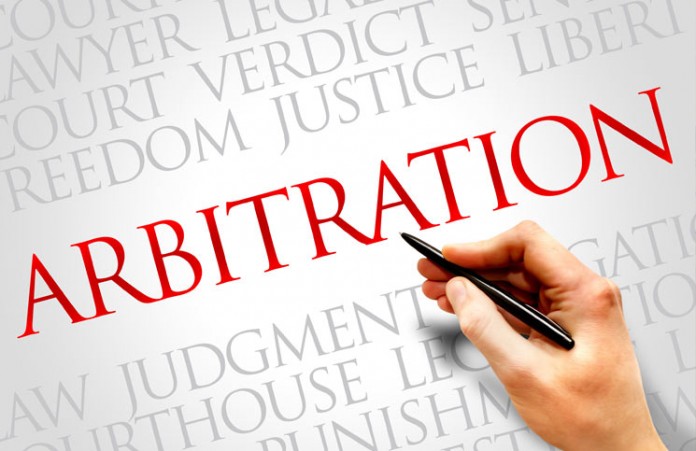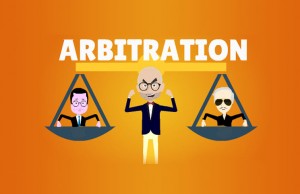In this blog post, Mansi Arora, who is a law graduate and is currently engaged in her family business, discusses the importance of impartiality and independence of arbitrators.
Alternative Dispute Resolution being a cost-effective and time-saving remedy for resolution of commercial disputes between private parties is gaining sufficient ground these days. One such Alternate Dispute Resolution (ADR) remedy is that of Arbitration which refers to the settlement of disputes between Parties bound by a contract by a neutral third party without consulting the court. Arbitration is conducted under an agreement or an arbitration clause mentioned in the agreement, and the decision or the Arbitral award is legally enforceable and binding on the parties.
Arbitration being one of the most common ADR technique has not only provided a time-saving remedy for solving commercial disputes instead of the cumbersome process of litigation but has also generated opportunities for people engaged in the legal profession. Many lawyers have started taking up roles of arbitrators, mediators, and conciliators in both institutions (for, e.g., International Chamber of Commerce) and ad-hoc practice. However directly proportional to increasing opportunities is the increasing complexities of evaluation of the adjudication system. In this article, we shall dwell upon the issue of impartiality and independence of Arbitrators in the context of India.
In India, arbitrations are governed by the Arbitration and Conciliation Act, 1996 which consists of two parts. Where Part I covering all arbitration conducted in India, provides for non-intervention of courts, composition, and jurisdiction of the arbitrarily tribunal, conduct of proceedings, enforcement of awards, etc.; Part II containing provisions of modern law covers provisions for enforcement of foreign awards.
Appointment of arbitrators
Section 11 of the Arbitration Act, 1996, provides for appointment of arbitrators. Broadly, as per the Section, the parties to an arbitration agreement are free to agree on the procedure for appointing of arbitrators. However, it is in situations of absence of agreement or nonfollowing of agreed procedure, that the chief justice may intervene to appoint an arbitrator.
 The Hon’ble Supreme Court examined the power of Chief Justice to appoint an arbitrator in a catena of cases like Konkan Railway Corporation Ltd & Ors v. Mehul Construction Co. and S.B.P. & Co v. Patel Engineering & Anr., it was held that the power exercised by the Chief Justice or his designate under S. 11 of the Act is a judicial power and not an administrative power.
The Hon’ble Supreme Court examined the power of Chief Justice to appoint an arbitrator in a catena of cases like Konkan Railway Corporation Ltd & Ors v. Mehul Construction Co. and S.B.P. & Co v. Patel Engineering & Anr., it was held that the power exercised by the Chief Justice or his designate under S. 11 of the Act is a judicial power and not an administrative power.
In Anil Kumar v. B.S. Neelkanta AIR 2010, it was observed that ‘Chief Justice or his designate has to decide the issues if raised, regarding: (i) territorial jurisdiction; (ii) the existence of Arbitration Agreement; (iii) Arbitral Dispute.
Therefore where Parties are free to decide or include a clause for the appointment of an arbitrator in their agreement, the power of Chief Justice to appoint an arbitrator is limited to specific situations and mostly arises in cases of institutionalized arbitrations.
Impartiality and independence
Independence and impartiality of arbitrators is a significant part of an adjudicatory process. While the former rules out any interest of arbitrator in the dispute, the latter allows equal opportunity for both parties to present their case. For instance in Reliance Industries Ltd. & Ors. v. Union of India (2014), it was observed that considerations of nationality were not mandatory while making a decision on the appointment of the third arbitrator if the two nominated arbitrators failed to reach a consensus.
UNCITRAL Model Law on International Commercial Arbitration, 1985 which forms part and parcel of Part I of the 1996 Act provides for the grounds on which an arbitrator can be challenged under Article 12 of the Act.
Grounds for challenge under Section 12 of Arbitration Act 1996 are as follows—
“(1) When a person is approached in connection with his possible appointment as an arbitrator, he shall disclose in writing any circumstances likely to give rise to justifiable doubts as to his independence or impartiality.
(2) An arbitrator, from the time of his appointment and throughout the arbitral proceedings, shall, without delay, disclose to the parties in writing any circumstances referred to in sub-section (1) unless they have already been informed of them by him.
(3) An arbitrator may be challenged only if—
(a) circumstances exist that give rise to justifiable doubts as to his independence or impartiality, or
(b) he does not possess the qualifications agreed to by the parties.
(4) A party may challenge an arbitrator appointed by him, or in whose appointment he has participated, only for reasons of which he becomes aware after the appointment has been made.”
There exists an apprehension and assumption of apparent bias in Government contracts as in arbitration agreements Government nominated persons are majorly given the role to adjudicate as arbitrators. The Apex court deviating from its earlier view in cases like Union of India v. M.P. Gupta and Ace Pipeline Contract v. Bharat Petroleum that the practice of incorporating a named arbitrator who is an employee of the corporation, is not ipso facto a ground to raise a presumption of bias, or partiality, or lack of independence on his part; rightly addressed this issue in the cases Denel Proprietary Ltd. v. Bharat Electronics Ltd. and Anr; Indian Oil Corpn. Ltd. v. Raja Transport (P) Ltd and, Bipromasz Bipron Trading Sa v. Bharat Electronics Ltd. In these cases it was held that ignoring the named arbitrator/arbitral tribunal and nominating an independent arbitrator shall be the exception to the rule, to have resorted for valid reasons.
In the existence of such apparent bias, the Chief Justice is vested with the discretion of to appoint an arbitrator in institutionalized arbitration tribunals so that the integrity of the arbitration is upheld and the possibility of bias is reduced to the minimum.
Conclusion
Though there exists many lacunae regarding stipulation and interpretation of the Act, the shortcomings in the field of arbitration are being validly addressed and shall through the way of amendments and precedents be effectively resolved. Therefore the independence and impartiality of arbitrators are important loci to be thoroughly considered to ensure the efficient and proper functioning of the arbitration proceedings and successful resolution of commercial disputes.
 Serato DJ Crack 2025Serato DJ PRO Crack
Serato DJ Crack 2025Serato DJ PRO Crack












 Allow notifications
Allow notifications


